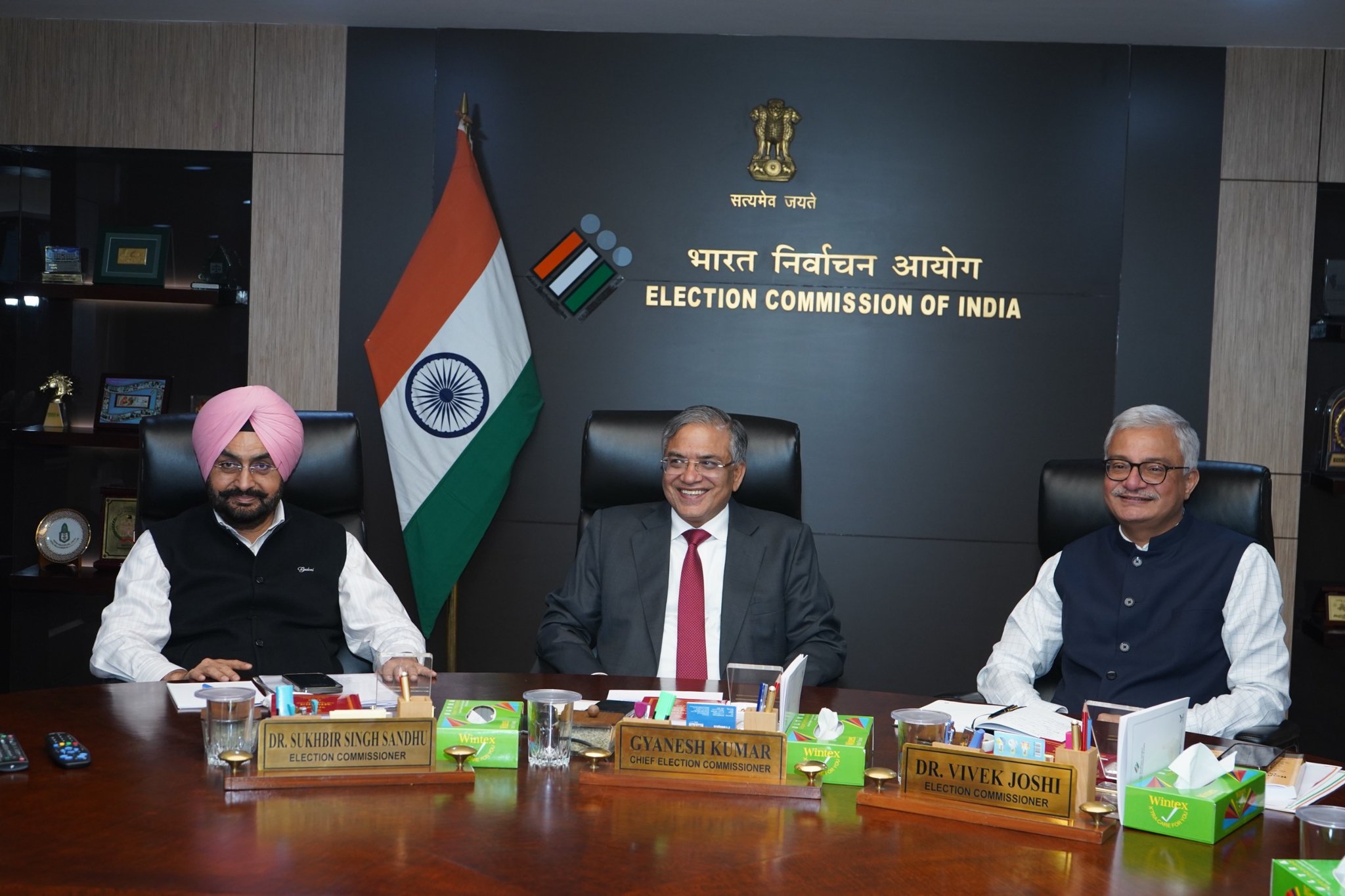MCC Enforced in Bihar; EC Warns Against AI Misuse and Deepfakes in Polls
Acknowledging the rapid rise of Artificial Intelligence (AI) in election campaigning, the ECI issued specific directives to curb the misuse of AI-based tools, especially those capable of generating deepfakes or synthetic media.

- Country:
- India
With the announcement of the General Elections to the Legislative Assembly of Bihar and bye-elections to eight Assembly constituencies on October 6, 2025, the Model Code of Conduct (MCC) has officially come into force across the state. The Election Commission of India (ECI) has issued comprehensive guidelines to ensure free, fair, and ethical campaigning, extending the scope of MCC provisions to include digital and social media platforms, where candidates and political parties are increasingly active.
Ensuring Ethical Conduct in Digital Campaigning
In its advisory, the Election Commission underscored that the principles of the MCC apply equally to online activities — including content posted on websites, social media platforms, and digital advertisements. Political parties, candidates, and campaigners are now required to adhere to the same ethical standards in their online communication as they do in physical campaigning.
The Commission made it clear that criticism of rival parties must be confined to their policies, programmes, past record, and performance. Personal attacks, especially those concerning private life or unverified allegations, are strictly prohibited.
The ECI reiterated that false narratives, doctored content, and misinformation campaigns have no place in India's democratic discourse. It cautioned that any attempt to distort facts or malign individuals using manipulated content would be treated as a serious violation of the MCC, inviting stern legal and administrative action.
AI and Deepfake Misuse: A New Frontier of Election Regulation
Acknowledging the rapid rise of Artificial Intelligence (AI) in election campaigning, the ECI issued specific directives to curb the misuse of AI-based tools, especially those capable of generating deepfakes or synthetic media.
The Commission observed that AI-generated fake videos, manipulated audio clips, and fabricated images pose a grave threat to electoral integrity, capable of misleading voters and influencing public opinion. Such actions, it warned, would be treated as attempts to vitiate the electoral environment and would attract severe penalties under both the MCC and the Information Technology Act.
To ensure transparency, the ECI has mandated that all AI-generated or digitally modified content used for campaigning must carry prominent labels or disclaimers, such as "AI-Generated," "Digitally Enhanced," or "Synthetic Content." These notations must be clearly visible on all posts, advertisements, and promotional materials shared across social media platforms or electronic media.
This initiative aims to promote digital accountability and media literacy, ensuring that voters can distinguish between genuine political communication and AI-generated propaganda.
Election Commission's Vigil on Social Media
In view of the growing influence of social media on voter behavior, the Commission has directed officials to maintain round-the-clock surveillance of digital platforms. A dedicated team of social media monitors has been deployed at both state and district levels to detect, flag, and remove content that violates the MCC or the Information Technology (Intermediary Guidelines and Digital Media Ethics Code) Rules, 2021.
The Election Expenditure Monitoring Teams have also been instructed to closely track sponsored advertisements and paid promotions on platforms such as Facebook, X (formerly Twitter), Instagram, YouTube, and WhatsApp to ensure compliance with campaign finance regulations.
According to ECI officials, content moderation partnerships have been reinforced with major social media companies to ensure swift removal of deepfakes, hate speech, and disinformation that may influence the electoral process.
A 24x7 control room will handle complaints of online misconduct, code violations, or fake news circulation, enabling quick response and coordinated enforcement.
Strict Enforcement and Accountability
The Commission emphasized that any violation of MCC provisions — whether offline or online — will invite strict disciplinary action, including FIR registration, candidate disqualification, or party censure. Political leaders and campaign managers have been advised to train their digital teams to comply with the new AI content guidelines and ensure that no content shared by their official handles misleads or deceives voters.
The Chief Electoral Officer (CEO) of Bihar has been instructed to work in coordination with district election officers and law enforcement agencies to monitor and curb any attempts to misuse technology during the campaign period.
Furthermore, the Commission has advised all candidates to submit comprehensive social media expenditure reports along with their regular election spending statements, ensuring transparency in digital campaign funding.
Upholding the Integrity of India's Democratic Process
The enforcement of the MCC marks the beginning of the electoral code period, during which government officials and political entities are bound by stringent ethical guidelines. Public servants are prohibited from using official machinery for electioneering, and the government is restricted from announcing new schemes, financial grants, or policy decisions that could unduly influence voters.
By extending the MCC to the digital domain, the Election Commission has demonstrated its commitment to keeping pace with technological evolution while safeguarding the sanctity of democratic elections.
In an official statement, the ECI reiterated that "democracy thrives when voters are informed, not manipulated." It called upon all stakeholders — political parties, digital influencers, and citizens — to uphold truth, transparency, and fairness throughout the campaign period.
With General Elections to the Bihar Legislative Assembly and the upcoming bye-elections, the Commission's proactive measures are expected to set a new benchmark in digital election regulation, ensuring that the ballot box reflects genuine public will, not algorithmic deception.









